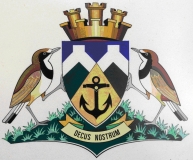FAQs
Currently there are no Frequently Asked Questions to display
FAQs
Contact form
Current Opportunities
Currently there are no careers to display
Notification sign-up
A-Z Index
Medium Term Revenue and Expenditure Framework 2018-2019 - 2020-2021 Report
Published 2018-07-12
Financial Services
Overview
The Financial Services Directorate is responsible for the development of the financial strategy and overall financial management. This directorate is also responsible for ensuring financial balance in the municipality, compliance with relevant legislation, regulations, and governance practices and finally ensuring the implementation of the Municipal Financial Management Act (MFMA). The head of the Financial Services Directorate is the Chief Financial Officer (CFO).
Director Financial Services (CFO)
Shaun Stanley
Physical Address: 26 Long Street, Bredasdorp, 7280
Telephone number: 028 425 1157
E-mail: sstanley@odm.org.za
Composition and Staff
The Financial Services Directorate consists of the following divisions:
• Finance Department
• Payroll, Banking & Investments
• Supply Chain Management & Assets
Functions of Financial Services Department:
- Financial Management: Ensure financial balance, manage assets and liabilities, and manage investments
- Budgeting: Develop and implement annual budgets, including adjustment budgets
- Reporting: Compile and submit financial statements, annual reports, and monthly financial reports
- Compliance: Ensure compliance with legislation, regulations, and governance practices
- Revenue Management: Collect revenue from service fees, assessment rates, and other charges
- Expenditure Management: Manage expenditure, including payroll, creditors' administration, and salary budget process
- Supply Chain Management: Ensure procurement processes are efficient, transparent, and competitive
- Insurance: Manage the municipal insurance portfolio
Top Layer SDBIP 2018-2019
Published 2018-07-12
